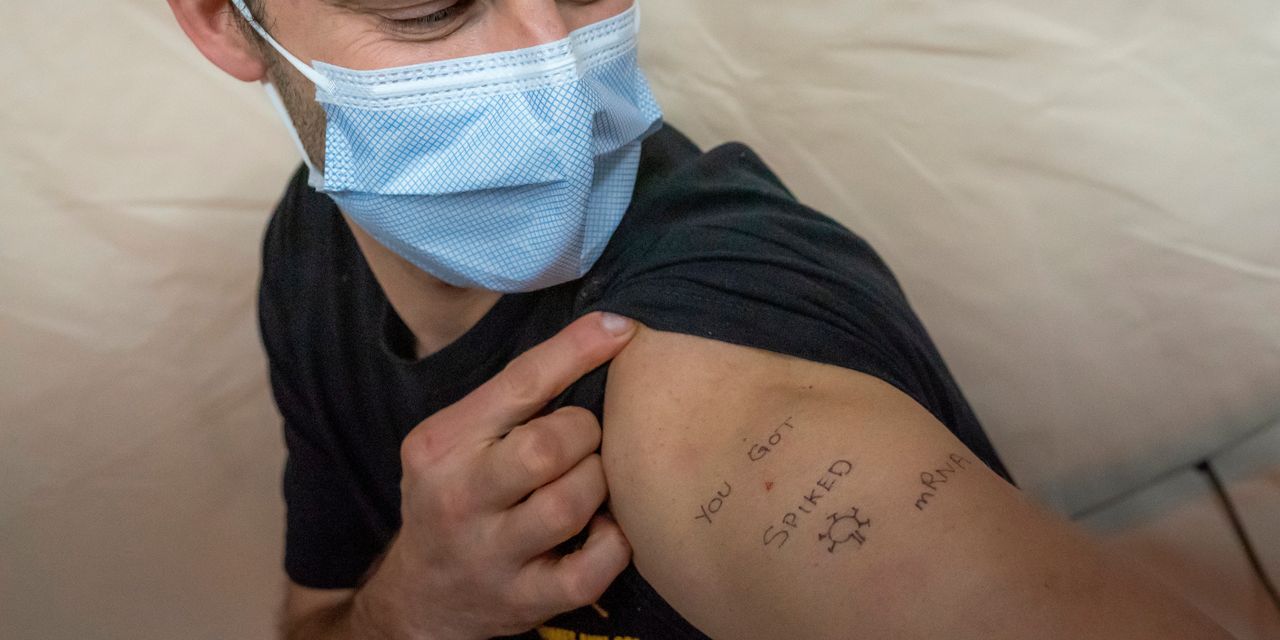
The U.S. is averaging more than 1,000 COVID-19 deaths a day for the first time since March, as cases continue to rise in all 50 states driven by the highly contagious delta variant as well as a gradual lifting of mitigation measures like social distancing and wearing face masks.
The seven-day average of deaths currently stands at 1,233, according to a New York Times tracker, or double the number counted two weeks ago. Hospitalizations, which were above 100,000 on Thursday to match levels seen in winter, eased to 96,568, the tracker shows. The average of new cases is up 24% from two weeks ago at 156,296.
Oregon has been especially hard hit, according to the Times, with hospitalizations rising 10-fold since July 9 to the highest levels since the start of the outbreak. Gov. Kate Brown, who has already deployed the National Guard to hospitals that are rapidly filling, has now mandated that vaccinated and unvaccinated people wear face masks, even outdoors. Brown has also ordered teachers and health care workers to get vaccinated for risk losing their jobs.
Nurses and health care workers in Oregon say their COVID patients are getting younger, with 29-year-olds and 30-to-39-year-olds now accounting for the majority of new cases and hospitalizations, the Guardian reported. The majority of patients with COVID are unvaccinated.
The U.S. vaccination drive remains static, despite pleas from health care experts and government officials. There are 172.2 million fully vaccinated Americans, according to the Centers for Disease Control and Prevention tracker, equal to 51.9% of the population. That means they have had two doses of the vaccines developed by Pfizer PFE, -0.78% and German partner BioNTech BNTX, -2.70% and Moderna MRNA, -4.63%, or one dose of Johnson & Johnson’s JNJ, +0.27% one-dose vaccine.
Read also: Supreme Court throws out nationwide eviction moratorium
Some 61.1% of the overall population has received at least one shot. Among adults 18-years-and-older, some 62.8% are fully inoculated and 73.5% have received at least one shot.
A study published in medical journal The Lancet found that COVID-19 patients continue to suffer from at least one symptom a year after being infected. The study involved 1,276 patients in Wuhan, China, and found that shortness of breath and mental health issues were the most common symptoms to linger.
A separate study conducted in England using data from more than 29 million people found that the risk of blood clots is far higher after being infected with COVID than from getting the AstraZeneca or Pfizer vaccines, also from the Guardian.
“People should be aware of these increased risks after Covid-19 vaccination and seek medical attention promptly if they develop symptoms, but also be aware that the risks are considerably higher and over longer periods of time if they become infected with Sars Cov-2,” said the study’s lead author, July Hippisley-Cox, professor of clinical epidemiology and general practice at Oxford University.
Elsewhere, New Zealand is extending its lockdown for another week and expects to keep the city of Auckland in full lockdown for at least another two weeks, the Associated Press reported. The news comes after 70 new daily cases were detected, the most so far, lifting the country’s total close to 350.
The World Health Organization plans to ship 100 million doses of the Sinovac and Sinopharm COVID-19 vaccines by the end of next month, Reuters reported, mostly to African and Asian countries. It will be the WHO’s first shipments of the Chinese vaccines and comes despite some concerns about the efficacy of the shots.
There was positive news from Denmark, which is planning to lift all COVID restrictions by Sept. 10 with more than 70% of its citizens fully vaccinated, AFP reported. Denmark was one of the first countries to lock down in March 2020 when it closed schools and non-essential businesses.
Latest tallies
The global tally for the coronavirus-borne illness climbed above 214.6 million on Friday, while the death toll rose to 4.47 million, according to data aggregated by Johns Hopkins University.
The U.S. leads the world with a total of 38.4 million cases and 633,566 deaths.
India is second by deaths at 436,861 and is third by cases at 32.6 million, the JHU data shows. Brazil has second highest death toll at 577,565 and has 20.7 million cases.
In Europe, Russia has 176,904 deaths, followed by the U.K. with 132,466.
China, where the virus was first discovered late in 2019, has had 106,922 confirmed cases and 4,848 deaths, according to its official numbers, which are widely held to be massively underreported.










Add Comment